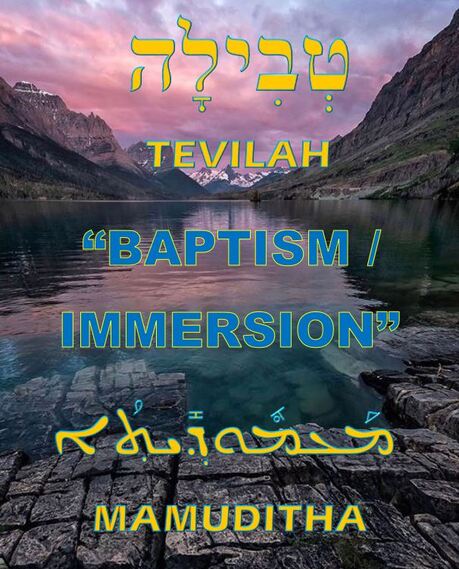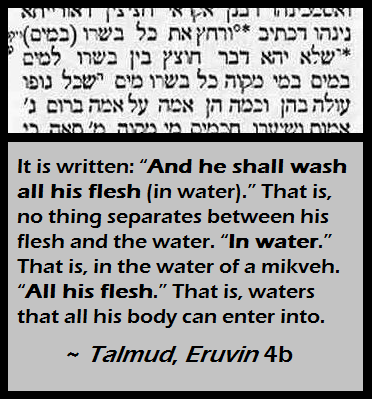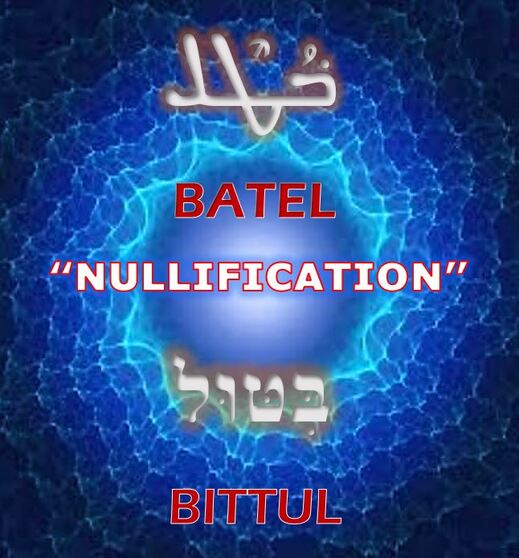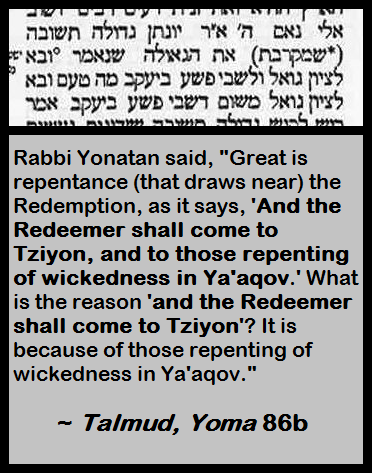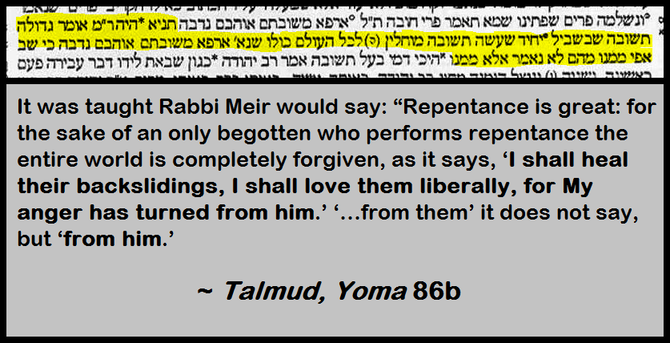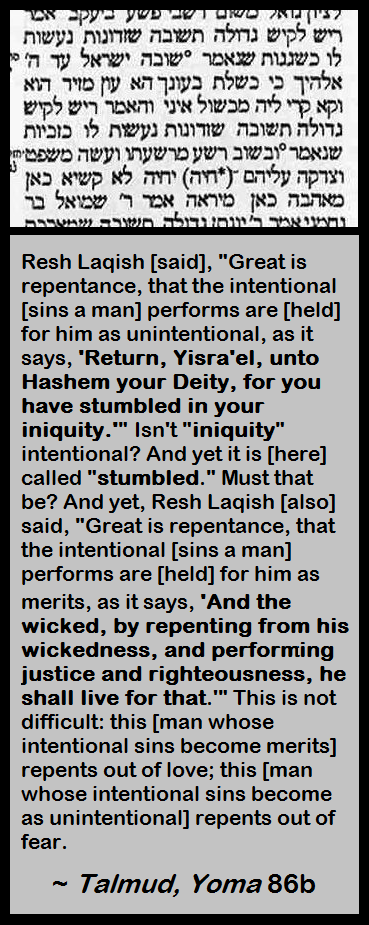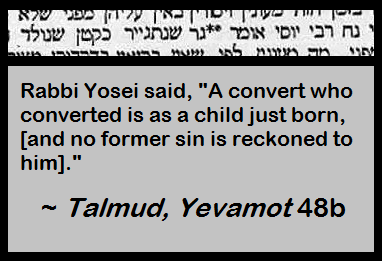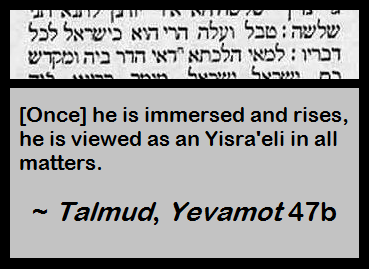WATERS OF UNBECOMING
by Jeremy Chance Springfield
11/9/19
The New Covenant writings spend a significant amount of time on an important spiritual topic that the Hebrew Scriptures never clearly explore in any real depth. This significant matter is the ritual washing event known popularly as baptism. The immersion of a person into a body of water for an expressly spiritual purpose plays a central role in the Gospel accounts, and it is also featured prominently in scattered passages of the subsequent writings of the followers of Yeshua.
Its centrality in our walk of faith is best appreciated when we read one of the final commands of Yeshua given to the disciples, recorded in Matthew 28:19 and here translated straight from the Aramaic of the ancient Peshitta text.
Its centrality in our walk of faith is best appreciated when we read one of the final commands of Yeshua given to the disciples, recorded in Matthew 28:19 and here translated straight from the Aramaic of the ancient Peshitta text.
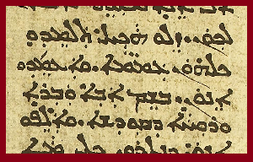
You must go! Therefore, you must [make] disciples of all peoples, and you must immerse them in the name of the Father, and of the Son, and of the Holy Spirit.
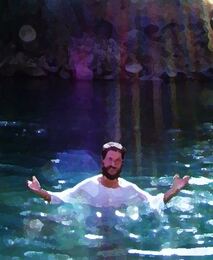
Over the millennia, this act of faith has undergone unique changes among different groups of believers in the Messiah. Some groups baptize people as infants when possible, others require a reasoned profession of trust in the Holy One and His Messiah from an age where deliberation of the matter can happen; some seek out natural bodies of water in which to immerse, while others use a designated body of water for this, and still others will use whatever receptacle in which is easiest to perform the act. The list of nuances goes on, of course, as customs vary among the scattered believers who hold different persuasions based on certain theological convictions.
Similarly, the understanding of the purpose and efficacy of baptism is also a varied perspective among believers. The beliefs in this spectrum differ widely, with some requiring the event in order to be viewed as part of the Kingdom of Heaven, thus as an act in the process of a conversion event, or as an act displaying a newly-intended obedience to the Most High, while others see it as a declarative act before others that old ways are being left behind. The overarching theme is typically that of a repentance taking place, a turning from sin to the Holy One. With but a small amount of investigation into the matter, however, one will quickly see that there are several ways the act of baptism is viewed across the many different groups in the Christian religion who perform it. Depending on the group with which a believer is affiliated, the meaning of the event will likely hold a noticeably different spiritual significance.
Similarly, the understanding of the purpose and efficacy of baptism is also a varied perspective among believers. The beliefs in this spectrum differ widely, with some requiring the event in order to be viewed as part of the Kingdom of Heaven, thus as an act in the process of a conversion event, or as an act displaying a newly-intended obedience to the Most High, while others see it as a declarative act before others that old ways are being left behind. The overarching theme is typically that of a repentance taking place, a turning from sin to the Holy One. With but a small amount of investigation into the matter, however, one will quickly see that there are several ways the act of baptism is viewed across the many different groups in the Christian religion who perform it. Depending on the group with which a believer is affiliated, the meaning of the event will likely hold a noticeably different spiritual significance.

While this is not surprising, as the physical act implies spiritual meaning so that multiple layers of purpose could very well likely co-exist within the immersion act, there is yet a deeper perspective on the matter that can be arrived at which shows us the underlying point of baptism. Although the initial statement made in this study declared that Hebrew Scriptures do not explore this topic in any real depth, it is yet by returning to those texts and looking at the brief mentions of it there that we have the opportunity to form a basis for the act that is framed strictly within the Word itself. We shall then be able to see the meaning of the event in a proper Hebraic perspective, which will provide us with a true spiritual clarity on the purpose of this watery ritual Messiah mandates us to perform.
The term baptism is one easily weighted with religious concepts that have developed over many years among the perspectives of many denominations. The mere mention of the term can bring all kinds of particular concepts with it as encountered from different sects of faith. Scripturally, however, the act is simply intended physically as a washing in water. The Torah holds scattered commands for a person to wash themselves in water after various situations have occurred which have brought upon them an unclean status before the Holy One. In these instances, the individual who is considered unclean is commanded, among other varied acts, to be washed in order for the status of being unclean to be lifted from him.
This complete immersion in water is what Scripture refers to as baptism. The Hebrew term for it is TEVILAH, and the Aramaic term used in the New Covenant texts of the Peshitta is MAMUDITHA. Both terms simply mean to be “immersed.”
The term baptism is one easily weighted with religious concepts that have developed over many years among the perspectives of many denominations. The mere mention of the term can bring all kinds of particular concepts with it as encountered from different sects of faith. Scripturally, however, the act is simply intended physically as a washing in water. The Torah holds scattered commands for a person to wash themselves in water after various situations have occurred which have brought upon them an unclean status before the Holy One. In these instances, the individual who is considered unclean is commanded, among other varied acts, to be washed in order for the status of being unclean to be lifted from him.
This complete immersion in water is what Scripture refers to as baptism. The Hebrew term for it is TEVILAH, and the Aramaic term used in the New Covenant texts of the Peshitta is MAMUDITHA. Both terms simply mean to be “immersed.”
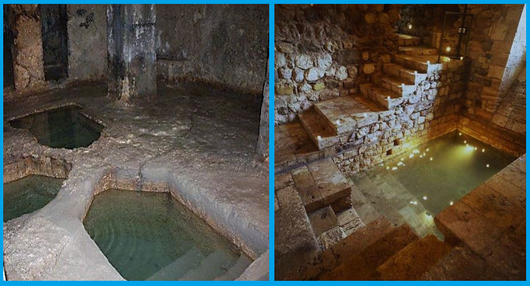
This idea that the unclean individual must be immersed is reckoned from the wording of the several passages that speak of such washing in the Torah, where the text tells us that the person must wash “in water,” and since the text does not specifically say any part of the body is to be outside of the water, the ancient Hebrew interpreters took this to mean a full-body immersion into the water. Such passages that command this immersion for being unclean are found in the following places: Leviticus 14:9, repeatedly in Leviticus chapter 15, Leviticus 16:26, and Leviticus 22:6, to name the most prominent ones.
In order to perform this act of washing, the ancient Hebrews often used what is called a MIKVEH, that is, a place where waters are gathered in which to immerse, based largely off of the mention of a mikveh in the Hebrew of Leviticus 11:36. However, oceans, springs, and spring-fed rivers are also viewed as a valid mikveh, according to the mention of mikveh in Genesis 1:10. Christianity uses the designation baptismal font to refer to such a place where ritual washing occurs, which can variously be full-body immersive pools or merely sprinkling or pouring water over the individual. The most ancient Hebrew mikveh and Christian baptismal font to have been discovered are fully immersive pools, showing that from antiquity, the practitioners viewed a baptism as requiring complete submersion in water.
The accompanying photo shows a Jewish mikveh – a medieval one from Spain on the right and an Italian one from about the 6th century on the left. Although some Christian sects hold to non-immersive forms of baptism, it is nevertheless important historically and to this study particularly to see that the ancient method was identical in nature to the even more ancient Hebrew method of baptism – submerging completely into a body of water. The Talmud, tractate Eruvin 4b, discusses this factor and explains how such is derived from the Scriptural text of the Torah.
In order to perform this act of washing, the ancient Hebrews often used what is called a MIKVEH, that is, a place where waters are gathered in which to immerse, based largely off of the mention of a mikveh in the Hebrew of Leviticus 11:36. However, oceans, springs, and spring-fed rivers are also viewed as a valid mikveh, according to the mention of mikveh in Genesis 1:10. Christianity uses the designation baptismal font to refer to such a place where ritual washing occurs, which can variously be full-body immersive pools or merely sprinkling or pouring water over the individual. The most ancient Hebrew mikveh and Christian baptismal font to have been discovered are fully immersive pools, showing that from antiquity, the practitioners viewed a baptism as requiring complete submersion in water.
The accompanying photo shows a Jewish mikveh – a medieval one from Spain on the right and an Italian one from about the 6th century on the left. Although some Christian sects hold to non-immersive forms of baptism, it is nevertheless important historically and to this study particularly to see that the ancient method was identical in nature to the even more ancient Hebrew method of baptism – submerging completely into a body of water. The Talmud, tractate Eruvin 4b, discusses this factor and explains how such is derived from the Scriptural text of the Torah.
Judaism has used from ancient times the ritual of immersion as a key component in the conversion process. Similarly, Christianity, following the lead of Judaism, has used this act of baptism mostly in a conversion event, as well. This conversion context arose initially in how the ancient Jewish interpretation of the Torah was used in regard to converts. If we look carefully at the following passage, we will be able to see the logic behind using baptism for a new convert to the true faith. Leviticus 14:9 speaks of the cleansing process for one who has suffered under the plague of leprosy.

And it shall be on the seventh day, he shall shave all his hair of his head, and his beard, and the eyebrows of his eyes, and all his hair he shall shave. And he shall launder his clothes, and wash his flesh in water, and be clean.
The leper was one under a spiritual ban from the Most High. He was viewed as unclean and was likewise prevented from entering any city or camp of the Israelites. He was cut off from all hope of worship of the Holy One. In the act of cleansing the removal of all hair was required, for hair is deeply involved in the presentation of our identity, and the loss of all of it would greatly change the image of a person. The removal of such hair is meant to signify that the person is new, that the old is gone. In this way, the leper strongly parallels the idolater who is under the wrath of the Most High for his sins and is outside of the commonwealth of the Kingdom. It is only when the individual is cleansed from his sins that he can enter into the covenant and be a part of the Kingdom. His identity is washed away, so to speak, as an idolater, and he assumes the identity of part of the commonwealth of Israel. Therefore, the ceremony of immersion for one so unclean was largely echoed for the convert who was coming to the true faith of ancient Judaism – immersion would signal their turning to and acceptance by the Holy One, as well.
The act of baptism is certainly important, as evidenced by the strict command given by the Messiah to His initial disciples. The missionary Paul, however, made sure in his letters to explain that the act itself is not to be focused upon, but rather, what baptism accomplishes for the believer who undergoes such an act. In typical Pauline fashion, he takes the long way around in explaining this, but thankfully, he did write about the spiritual efficacy of baptism. As we take some time now to carefully consider what he wrote, we shall see that he was actually explaining a deep spiritual truth about the matter that is important for every follower of the Holy One to grasp.
He begins his very interesting explanation in 1st Corinthians 1:13-17. I have translated the following from the Aramaic of the Peshitta texts.
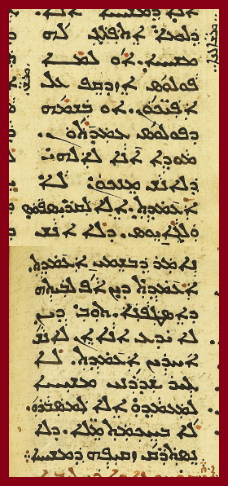
13 Perhaps Messiah has been divided? Or perhaps Pawlas was crucified concerning your presence? Or in the name of Pawlas you were immersed?
14 I give thanks to my Deity that I immersed no man from among you but Krispas and Ga’iyas,
15 that no man should say I immersed in my name.
16 Yet, I immersed also the house of Estefana, but further, I do not know if another man I immersed.
17 For Messiah did not send me to immerse, but to declare - not with wise words, that the cross of Messiah should not be meaningless.
In this passage, Paul explains that it is improper to focus on who baptized a person into the faith, as if one’s authority was better than that of another. Paul then continues in his teaching explaining that the important thing is not the identity of who baptized you, but what happens in that process of immersion – and afterwards. Those who are so called into this faith are not to look towards anyone else but Yeshua, as 1st Corinthians 1:24 makes clear.
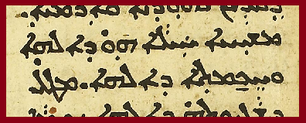
... Messiah is the strength of Alaha, and the wisdom of Alaha ...
This statement is important in the flow of his teaching because it shows us that we are not relying on ourselves, on our own strengths and understanding, but on Yeshua, who is both the strength and the wisdom of the Holy One. We should not trust in our own intellect or supposed wisdom, or in the strength of our own ego. Indeed, if we are honest, we have no place to rely on those things in ourselves, for Paul goes on to describe the low status of those who had recently come into the faith from the act of baptism. 1st Corinthians 1:26-29 records his words, which are very important for us to properly understand what has happened to us in the act of baptism.
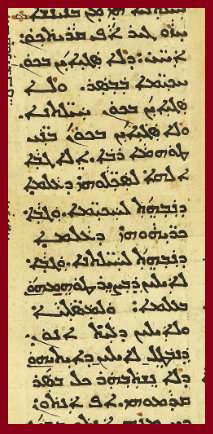
26 For you must behold even your calling, my brothers, that not many among you are wise in the flesh, and not many among you are strong, and not many among you are sons of a great lineage,
27 but Alaha selected the foolish of the world to shame the wise, and selected the weak of the world to shame the strong,
28 and selected those who are of inferior lineage in the world, and the despised, and those who are nothing, that He might bring to nullification those who are,
29 that there should not boast any flesh before Him.
The Corinthian believers had nothing in themselves to which they could look for strength. Rather, they were lacking in so many ways. And yet, they were in the perfect position to be used by the Most High. The reality is that these words help to illuminate what occurs also in us spiritually at the moment of baptism, and as we unveil their importance, we can appreciate why Yeshua commanded that His disciples perform such an act on all who come to faith in Him as the Messiah.
Note that Paul goes to some length to present the low nature of these believers. To the world, they are of little importance. He even says they are “nothing.” While it might seem harsh, he is in the middle of making an important point, for the next thing we read is that the Holy One chose such disregarded individuals for a specific purpose: verse 28 says it is in order to “bring to nullification” the other people in the world.
What is that supposed to mean?
Note that Paul goes to some length to present the low nature of these believers. To the world, they are of little importance. He even says they are “nothing.” While it might seem harsh, he is in the middle of making an important point, for the next thing we read is that the Holy One chose such disregarded individuals for a specific purpose: verse 28 says it is in order to “bring to nullification” the other people in the world.
What is that supposed to mean?
Now, a cursory reading of this statement might be understood in such a way that Paul is saying the choosing of the undesirables of the world is to bring down those who are of apparent value according to the world’s system of worth. Alternatively, it could be understood that this choosing is in attempt to highlight the favor of the lowly over the exalted. However, once we understand the Aramaic term used here in the text, we have the opportunity to view this passage in an entirely different manner.
Indeed, comprehending this phrase about nullification properly is the very key to understanding the importance of baptism.
The word I have rendered as “nullification” is merely a conjugation of the Aramaic term BATEL. This is the Aramaic cognate of the Hebrew term BITTUL. The word is used in a very important manner within the Jewish faith. It is a specific religious term that signifies the act of diminishing one’s self, desires, and ego in order to make room for the Presence of the Holy One of Israel. It is a letting go of our own self-worth and place before the Most High. BITTUL / Nullification puts us in a place where we are retracting all self-asserting motives and letting the Presence of the Holy One take control of us, filling us up with His desires and intents. BITTUL / BATEL thus means to unbecome, basically, to experience self-effacement so that He who is truly important can take center stage in the heart and mind of the believer to shape us as He so desires.
Indeed, comprehending this phrase about nullification properly is the very key to understanding the importance of baptism.
The word I have rendered as “nullification” is merely a conjugation of the Aramaic term BATEL. This is the Aramaic cognate of the Hebrew term BITTUL. The word is used in a very important manner within the Jewish faith. It is a specific religious term that signifies the act of diminishing one’s self, desires, and ego in order to make room for the Presence of the Holy One of Israel. It is a letting go of our own self-worth and place before the Most High. BITTUL / Nullification puts us in a place where we are retracting all self-asserting motives and letting the Presence of the Holy One take control of us, filling us up with His desires and intents. BITTUL / BATEL thus means to unbecome, basically, to experience self-effacement so that He who is truly important can take center stage in the heart and mind of the believer to shape us as He so desires.
Therefore, the believers are they who are naturally “nothing,” who have been emptied of so much already through their entrance into the Kingdom, and thus now have value as citizens of righteousness by the presence of the Spirit of the Most High filling them up. Through their witness, they have the opportunity to also “bring to nullification” those who are viewing themselves in a disproportionate value, of letting the Holy One be all in all in them. This act of nullifying others is therefore by no means a negative thing, in no way an act of wrath, but an opportunity for the believers to build up properly the hearts and minds of the people of the Kingdom of Heaven. When a person knows they are “nothing,” then the Holy Spirit is able to fill them up to be what is needed for the Kingdom.
The beautiful thing about this is that Paul, although he does not come out and say it blatantly, is actually speaking deep truths by referencing baptism and the act of nullification in which these believers have a key part. This is because Judaism views the concept of BATEL / BITTUL as intricately linked to the act of baptism! When Paul, educated in these matters of Jewish religious concepts, brings up this notion in the context of baptism there in 1st Corinthians chapter 1, he is absolutely intending the deep spiritual event of letting go of all that we are to let the Most High be all that He is within us. Such an idea is echoed also by another Jewish teacher who came long after Paul but understood also these core spiritual concepts. The Alter Rebbe, Rabbi Shneur Zalman of Liadi, wrote about this factor Paul understood in an amazing and succinct statement.
The beautiful thing about this is that Paul, although he does not come out and say it blatantly, is actually speaking deep truths by referencing baptism and the act of nullification in which these believers have a key part. This is because Judaism views the concept of BATEL / BITTUL as intricately linked to the act of baptism! When Paul, educated in these matters of Jewish religious concepts, brings up this notion in the context of baptism there in 1st Corinthians chapter 1, he is absolutely intending the deep spiritual event of letting go of all that we are to let the Most High be all that He is within us. Such an idea is echoed also by another Jewish teacher who came long after Paul but understood also these core spiritual concepts. The Alter Rebbe, Rabbi Shneur Zalman of Liadi, wrote about this factor Paul understood in an amazing and succinct statement.
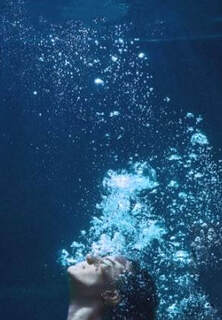
We thus see that the act of BATEL / BITTUL “nullification,” happens at the moment of a person’s baptism! Therefore, the person who immerses into the waters of the mikveh in the tevilah / mamuditha “baptism” event is experiencing the diminishing of their own self and the increase of the Presence of the Holy One! They effectively unbecome, shedding their own self-centeredness and hopes and dreams so that the Holy Spirit may become more through them.
It makes complete sense when considered: a human can live and function anywhere on this planet. From the desert to the wilderness, from the coasts to the mountain tops, a human is in an environment in which he can survive with reasonable adaptions to the environment. But a human cannot live and function when immersed into a body of water. There is no natural physical adaptation for that. Rather, submerged in a mikveh / baptismal font, the human is in an environment that is 100% hostile to how a body is designed to function naturally. Therefore, immersing into the waters of baptism is truly an act of nullification even on the physical level. Unable to breathe underwater, a person immersed in a mikveh is nullified in every way – it is essentially as if the individual has embraced death in their submersion.
It makes complete sense when considered: a human can live and function anywhere on this planet. From the desert to the wilderness, from the coasts to the mountain tops, a human is in an environment in which he can survive with reasonable adaptions to the environment. But a human cannot live and function when immersed into a body of water. There is no natural physical adaptation for that. Rather, submerged in a mikveh / baptismal font, the human is in an environment that is 100% hostile to how a body is designed to function naturally. Therefore, immersing into the waters of baptism is truly an act of nullification even on the physical level. Unable to breathe underwater, a person immersed in a mikveh is nullified in every way – it is essentially as if the individual has embraced death in their submersion.
This Hebraic connection of baptism and nullification goes beyond even the physical realm to touch the spiritual. Paul makes such direct connection between baptism, nullification, and death in yet another passage, as we read his words recorded in Romans 6:3-6.

3 Or do you not recognize those who were immersed in Yeshua the Messiah were immersed in His death?
4 For we were buried with Him in the immersion unto death, that as Yeshua the Messiah was raised from the house of the dead by the glory of His Father, thus also we, in life anew, shall walk.
5 For if we have been planted together with Him in the pattern of His death, thus even shall we be in His resurrection.
6 For we know that the old son of man was crucified with Him, that the body of sin shall be nullified, never again to minister to sin.
Paul’s words display that knowing thought he had which viewed baptism and BITTUL “nullification” as going hand-in-hand. He again makes that connection between baptism and our being “nullified” in that act by using the same word BATEL as he used previously in the passage cited from 1st Corinthians. The conversion experience of descending into the mikveh is ridding one’s self of that which prevents the Holy One from drawing near to us. It is a physical act that, like so many other physical commandments, reaches into the spiritual and truly transforms us. The believer in the moment of baptism unbecomes with his ego decreasing and the Spirit of the Holy One fills us up, mind, body, and soul. A death on many levels occurs, allowing us to rise up, born anew from the waters by the Spirit of the Most High.
This act is important because all creation is filled with the Presence of the Holy One. His Spirit reaches into every atom of this grand universe. We have several beautiful expressions of this in the Word which are worth contemplating.
This act is important because all creation is filled with the Presence of the Holy One. His Spirit reaches into every atom of this grand universe. We have several beautiful expressions of this in the Word which are worth contemplating.
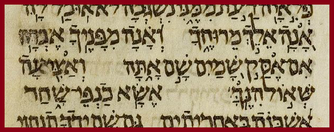
PSALM 139:7-8
7 Where shall I walk from Your Spirit, and where shall I flee from Your face?
8 If I ascend [to the] heavens, there You are, and [if] I spread a bed [in] the grave, [I will] behold You!
7 Where shall I walk from Your Spirit, and where shall I flee from Your face?
8 If I ascend [to the] heavens, there You are, and [if] I spread a bed [in] the grave, [I will] behold You!
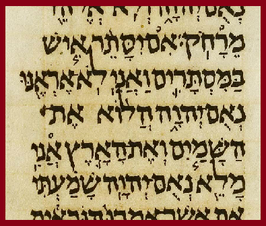
JEREMIAH 23:24
“Can a man hide in hidden places, and I not see him?” says YHWH. “Do I not fill the heavens and the earth?” says YHWH.

DEUTERONOMY 4:35
You were shown to know that YHWH, He is the Deity. There is nothing else.
You were shown to know that YHWH, He is the Deity. There is nothing else.
We see, therefore, that creation is in its own state of BITTUL “nullification,” being filled to the brim with His Presence. Man alone, in his sin, in his selfishness, has the tragic ability to be alienated from that fullness of the Creator’s Spirit. It is in the moment of obeying Him in faith that a believer experiences the change most needed. The filling up of the person with His Spirit, His overwhelming Presence, happens somehow in the nullification occurring in baptism. In those waters he truly unbecomes what he is so that the Holy One can become in him what He needs to be for the fulfillment of all His desires. It is not merely a symbol of obedience, or a magical cleansing process, or a mental / emotional catharsis. No, it is a commanded act by the Messiah Himself, and so it has a purpose that is real, spiritual, and necessary.
Indeed, if we turn our attention to Yeshua and His personal experience with baptism, it is starkly evident how significant the act truly is for us all. Yeshua went to His cousin John to be baptized and experience His own nullification event. John situated his baptisms at the Jordan river flowing down out of Mount Hermon to irrigate the land of Israel, and one of its main tributaries at that mountain is the Banias stream, which is a spring-fed stream that merges into the snowmelt of Hermon that streams down into Israel, thus validating the water of the Jordan river as a Torah-based mikveh. John knew of the spiritual value of the act he was involved in at the Jordan river, as we see evidenced in his own words in the Gospel of John 3:30. Speaking of Yeshua, he utters a declaration that takes on new worth with what we have seen thus far.
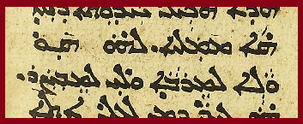
For Him it is proper to increase, and for me to diminish.
His very words echo the spiritual event that happens in the act of baptism: the individual is diminishing while the Spirit is increasing upon him! This is the very concept of BITTUL / “unbecoming.” John’s words carry a weight in this proper Hebraic understanding that they simply do not have if this spiritual background and connection is not understood.
John knew that people needed to repent due to the Kingdom that was coming with the advent of Yeshua as the Messiah. It was a prophetic necessity that repentance begin before the Messiah could arrive, as the Talmud, in tractate Yoma 86b, shows that Isaiah 59:20 was understood in this very manner.
John knew that people needed to repent due to the Kingdom that was coming with the advent of Yeshua as the Messiah. It was a prophetic necessity that repentance begin before the Messiah could arrive, as the Talmud, in tractate Yoma 86b, shows that Isaiah 59:20 was understood in this very manner.
He knew a place needed to be made in each person’s life for the presence of the Holy Spirit to come upon them when the Redeemer arrived. However, he did not completely understand what was about to happen when Yeshua met him at the Jordan river. Yeshua needed to undergo His own baptism at the hands of John. The event as recorded in Matthew 3:13-15 holds the relevant information for our study.
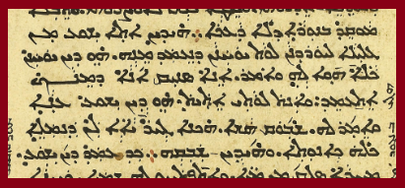
13 Then Yeshua came from Gelila to the Yurdnan, unto Yukhanan, that he be immersed by him.
14 Yet, Yukhanan, he prohibited Him, and said, “I need to be immersed by you, and you have come unto me?”
15 Yet, Yeshua, He replied, and said to him, “Allow it now, for thus it is fitting for us that we fill all righteousness.” And then he allowed Him.
14 Yet, Yukhanan, he prohibited Him, and said, “I need to be immersed by you, and you have come unto me?”
15 Yet, Yeshua, He replied, and said to him, “Allow it now, for thus it is fitting for us that we fill all righteousness.” And then he allowed Him.
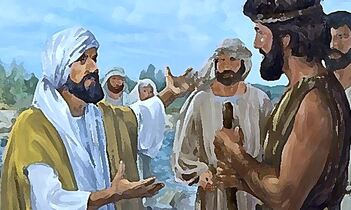
John doesn’t seem to understand why Yeshua would need to undergo the act of baptism. To be honest, this issue of Yeshua desiring to be baptized has also apparently perplexed most people who have considered the situation. Theologians from the earliest of days have admitted the oddity of the Messiah seeking baptism, and all manner of reasons have been offered up attempting to explain why Yeshua would undergo an immersion based on repentance. Even a cursory search on the internet will bring up explanation after explanation that never seems to satisfy the question asked. While commentators have sincerely attempted to address this issue, not understanding the Hebraic concept of baptism bringing about BETAL / BITTUL “nullification” has severely damaged their ability to rightly interpret this very important event in the life of Yeshua.
Approaching His baptism with the understanding of what it does to a believer – the nullification that occurs, allows Yeshua’s desire to have it performed make absolute sense. He was seeking to be filled for the ministry He was about to undertake, and so had to let go of all that He could of human ego and desire. In order to become the Messiah who could face all that stood before Him in the way to the cross, Yeshua had to unbecome as much as possible. This truth we see reflected in another of Paul’s letters, in Philippians 2:5-8.
Approaching His baptism with the understanding of what it does to a believer – the nullification that occurs, allows Yeshua’s desire to have it performed make absolute sense. He was seeking to be filled for the ministry He was about to undertake, and so had to let go of all that He could of human ego and desire. In order to become the Messiah who could face all that stood before Him in the way to the cross, Yeshua had to unbecome as much as possible. This truth we see reflected in another of Paul’s letters, in Philippians 2:5-8.
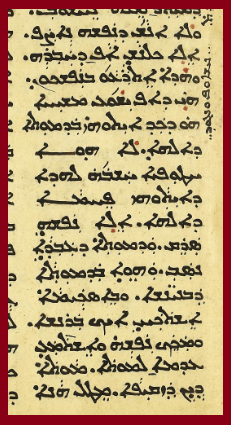
5 And this you must think in yourselves, as also Yeshua the Messiah:
6 he who, while being in the image of Alaha, did not reckon to hold on to this comparison of Alaha,
7 but instead, his soul was emptied, and the image of a servant he took, and was in the image of the sons of men; and in appearance was found as a son of man,
8 and humbled his soul, and obeyed until death - yet, the death of the cross!
Yeshua’s insistence on baptism was so He would be completely useful to the Holy One in the calling for which He had been ordained. The seriousness of the spiritual task required Yeshua’s total submission to the Most High, and so in that act of baptism in the Jordan river He was nullified to the uttermost. Although Yeshua undertook a baptism by the hands of one who was preaching repentance to be spared from judgment, His baptism was markedly different, as John could perceive. Judaism holds to the concept of two different types of repentance even from ancient times: a repentance done out of fear of being punished for sin, which is called in Hebrew TESHUVAH MI’YIRAH “repentance out of fear,” and a repentance done out of pure love for the Holy One, which is called in Hebrew TESHUVAH MEY’AHAVAH “repentance out of love.” In some Jewish texts, these two types of TESHUVAH are mentioned instead as TESHUVAH ILA'AH "higher repentance" and TESHUVAH TATA'AH "lower repentance." When discussed as TESHUVAH ILA'AH "higher repentance," it is especially viewed as a repentance performed by an already righteous person that has nothing to do with an actual sin, but from a desire to draw closer to the Holy One. As in, "this is where I am, which is a good place to be, but I have the opportunity to draw even closer, so I am releasing more of myself, my ego, to do so." We can rest assured that although Yeshua chose a man preaching repentance out of fear to baptize Him, His own immersion truly embodied TESHUVAH MEY’AHAVAH / TESHUVAH ILA'AH – a repentance done out of love and a desire to be as close as possible to the Father while on this earth. This is why John did not understand the reason Yeshua was coming to him to be baptized; his immersion was for repentance from sins, and so if Yeshua underwent such by his hand, all would assume Yeshua was repenting for past sins. In reality, this was not the case, but rather, it was done out of love and a desire to move closer to the Holy One. However, since BITTUL is a key component in the immersion process, Yeshua could not state that His baptism was of a different kind, or else the very aspect of the nullification of ego / self-preservation that would fill Him with the Spirit of the Most High would be compromised. Let others think what they must of Him - Yeshua could not let that factor into His obedience and diminishing before the Holy One. In this, He was showing us all the most excellent way. He was making absolute certain that all that He was would be in complete harmony with the Holy One. All that could be would be nullified in His calling to be the one who would be completely filled with the Spirit.
This dedication of Yeshua to the redemptive plan was rewarded upon His rising from the waters. We read in Matthew 3:16 what happened as Yeshua came out of that immersion, and it makes total sense with everything we have learned thus far.

Yet, when Yeshua was immersed, at once He rose from the waters, and the heavens were opened for Him, and He saw the Spirit of Alaha who descended as a dove and came upon Him.

This immediate miraculous response from the heavens highlights for us the spiritual purpose of baptism as understood by Judaism – to be so nullified in one’s self that the Spirit of the Most High is able to come upon the one who has been immersed in a manner that is intimate and trans-formative. In this event absolutely unparalleled in all of the history that is contained for us in the Word, the Holy Spirit is said to have descended upon Yeshua like a dove as He rose up from those waters.
Everything changed for Him after this special divine indwelling occurred: a ministry of healing unrivaled and of teaching performed with authority and power ensued after this moment where He laid everything aside to let the will of the Most High be in control in His life. This one-hundred percent unique filling of the Spirit at Messiah’s nullification speaks also to the very important statement Paul made in his letter to the Colossians, in 2:9 of that book. Speaking of Yeshua and the position He was in that no other person had previously experienced, Paul made the declaration that makes complete sense in light of all that has been learned thus far in this study.
Everything changed for Him after this special divine indwelling occurred: a ministry of healing unrivaled and of teaching performed with authority and power ensued after this moment where He laid everything aside to let the will of the Most High be in control in His life. This one-hundred percent unique filling of the Spirit at Messiah’s nullification speaks also to the very important statement Paul made in his letter to the Colossians, in 2:9 of that book. Speaking of Yeshua and the position He was in that no other person had previously experienced, Paul made the declaration that makes complete sense in light of all that has been learned thus far in this study.
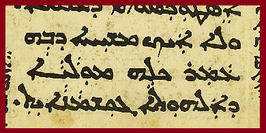
…in whom dwells all the fullness of the Divinity bodily.

Yeshua utilized the waters of the Jordan river as a mikveh to unbecome so that He could then become all that the Spirit had planned for His life. The Spirit of the Holy One indwelt Him not only due to being without sin, but also because of His act of complete and utter selflessness – undergoing a baptism that forced Him to lay aside all semblance of self-worth, seemingly identifying scandalously as someone in need of repentance by immersing in the judgment-based baptism of which John preached. He nullified Himself and so received the fullness of the Holy Spirit in order to perform the work of the Redeemer promised by the Holy One. The power of His act of baptism is thus seen to be real and undeniable. Indeed, Judaism holds an astonishing idea connected directly with this act of repentance performed by the proper heart. Returning once more to the Talmud, tractate Yoma 86b, we see just how meaningful becoming nullified for the Holy One can be, as the rabbis showed by interpreting Hosea 14:5 in an astonishing way.
Yeshua’s act is thus seen to have true meaning and purpose, beyond what we might understand without the proper Hebraic perspective of the matter in play. His nullification in this act brought the ability for the world to also be healed. This ancient understanding was being played out in front of John and all who saw Yeshua rising from the waters. As He unbecame in that act of repentance out of love, He opened for us the opportunity to become what we are supposed to be for the Kingdom. In our own act of repentance in the baptismal event, we too, by Yeshua’s wonderful merit, do the same act out of love. The result of possessing such identical intent at that moment truly matters, for so we see once again in the Talmud, tractate Yoma 86b, that the rabbis interpreted Hosea 14:2 and Ezekiel 33:19 in enlightening and relevant ways.
John preached a baptism of repentance that was founded in fear from the consequences of our sins. That is a valid baptism, to be sure. Repenting in such a manner has a powerful spiritual effect – intentional sins become reckoned as unintentional. Yet, there is a greater repentance; the repentance Yeshua Himself underwent, which made certain that His entire past was one of merit – no sin could hide there! This is the baptism of repentance to which every person should seek! When we properly understand the power of repenting out of love in that act of baptismal BITTUL, we find that the past is miraculously reorganized for us. What were once shameful impediments to righteousness in our personal history are transformed by His goodness into merits, for those failures are then seen to have worked in the mysterious process only He can fathom that brought us ultimately to love the Holy One and seek to be filled with His Presence! In this astounding revelation we can also appreciate anew the famous words of Paul as recorded for us in Romans 8:28.
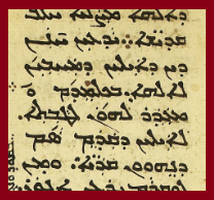
Yet, we know that those who love Alaha are aided by every thing for the good, for them who were previously ordained to be called [to Him].
All things aid His plan for us when we are living in that gift of BITTUL. The transformation of the guilt of our pasts shows us that His restorative healing touches us in the here and now, and yet does not stop there, but ripples back like waves into even the darkest corners of our regrets and rebellions – re-evaluating what was done in the light of His kindness, making merits even from those moments we wished never happened. We truly unbecome and are born anew to rise with a reformed life ready to be filled with all that He has for us.
In fact, the transformation underwent in the act of repentance at baptism is spoken of from ancient times in another place in the Talmud, tractate Yevamot 48b, using language that should be quite familiar to most believers.
In fact, the transformation underwent in the act of repentance at baptism is spoken of from ancient times in another place in the Talmud, tractate Yevamot 48b, using language that should be quite familiar to most believers.
The one who has experienced repentance and the baptism that follows rises from those waters as a new person, their former sins no longer being applied to them, just as the passages above from elsewhere in the Talmud and in the words of Paul show that everything works for the good of the one who loves the Most High. This is possible because the individual undergoes BITTUL / nullification, allowing the Holy Spirit to so fill up that heart that all that remains is a new person. With this perspective we can more appropriately appreciate the spiritual intent behind Yeshua’s words to Nicodemus in John 3:3-5.
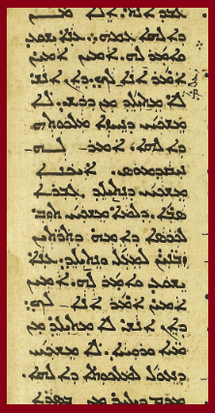
3 Yeshua answered and said to him, “Amen, amen! I say to you that if a man is not birthed anew, he is not able to see the Kingdom of Alaha.”
4 Nicadimas said to Him, “How shall a man be birthed [while] old? Perhaps he is able again to enter a second time the womb of his mother, and be birthed?”
5 Yeshua answered and said to him, “Amen, amen, I say to you that if a man is not birthed from water and the Spirit, he is not able to enter the Kingdom of the Heavens.”
Like Paul’s words previously encountered, Yeshua presents here ancient Jewish concepts intricately connected to baptism. The one who turns to the Most High is made anew spiritually, which changes everything about their life and opens to them the Kingdom of Heaven – that is, they are granted citizenship as part of His holy people.
This idea is echoed by Paul also in 2nd Corinthians 5:17, where our connection to the Messiah is said to perform a transformation for us.
This idea is echoed by Paul also in 2nd Corinthians 5:17, where our connection to the Messiah is said to perform a transformation for us.
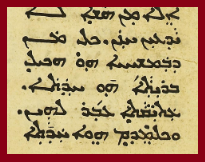
Any who is in Messiah is a new creature; the old [ways] have passed for them, and everything is new.
Whatever defined us before is no longer binding; that which we were is gone, and as we rise from those nullifying waters, we are a new creature entirely. The person of repentance performed out of love is changed to become part of His people. This concept is one also displayed in the Talmud, tractate Yevamot 47b.

When the believer ascends from the waters of the mikveh / baptismal font, he is said to be viewed as an Israelite. His identity now is found to be one of covenant value, standing shoulder-to-shoulder with all the people inheriting the promises given so graciously to our father Abraham. This is the spiritual worth of coming to Him in the proper heart – out of love to be emptied and filled with all His Spirit, that we can be a part of His Kingdom here and now.
Proper repentance leads to being emptied of everything in us that opposes Him, filled instead with the fullness of His Spirit, and being gifted a past seen by the Holy One as full of merit, for it led us to His heart. Our former failings in life are rewritten by His mercies as providential moments leading us to love Him and desire His fullness in our lives. Baptism can thus be seen to have a vital purpose as a meaningful spiritual act that accomplishes in us something that we all need – the diminishing of our selfish desires that they might be replaced by His awesome Spirit who will work in us edification for the Kingdom. Every believer has the opportunity to let go of self under those waves and rise up in the power of His Spirit, possessing new life in all respects. His Presence yearns to fill us up, to nullify us so that He can be the One who leads us onward for a life of trusting in Him when we rise in love out of those waters of unbecoming.
Proper repentance leads to being emptied of everything in us that opposes Him, filled instead with the fullness of His Spirit, and being gifted a past seen by the Holy One as full of merit, for it led us to His heart. Our former failings in life are rewritten by His mercies as providential moments leading us to love Him and desire His fullness in our lives. Baptism can thus be seen to have a vital purpose as a meaningful spiritual act that accomplishes in us something that we all need – the diminishing of our selfish desires that they might be replaced by His awesome Spirit who will work in us edification for the Kingdom. Every believer has the opportunity to let go of self under those waves and rise up in the power of His Spirit, possessing new life in all respects. His Presence yearns to fill us up, to nullify us so that He can be the One who leads us onward for a life of trusting in Him when we rise in love out of those waters of unbecoming.
All study contents Copyright Jeremy Chance Springfield, except for graphics and images, which are Copyright their respective creators.
